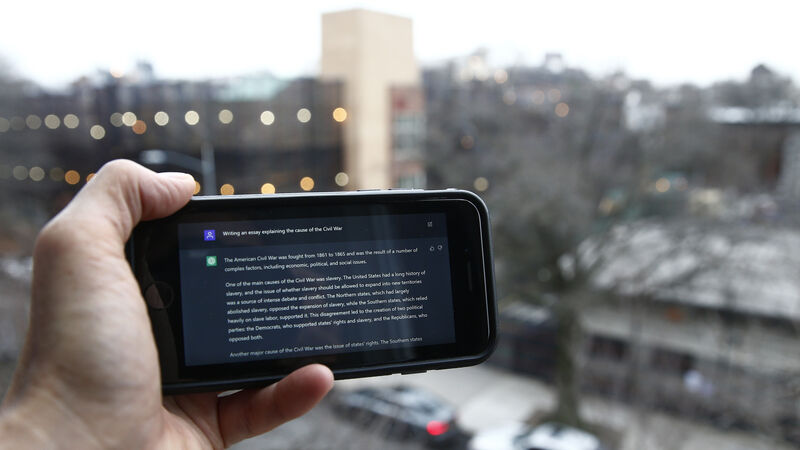ChatGPT app faces EU scrutiny over AI risks

A ChatGPT prompt is shown on a device. The impressive but controversial writing tool can generate paragraphs of human-like text.
EU industry commissioner Thierry Breton has said new proposed artificial intelligence (AI) rules will aim to tackle concerns about the risks around the ChatGPT chatbot and AI technology, in the first comments on the app by a senior Brussels official.
Just two months after its launch, ChatGPT, which can generate articles, essays, jokes, and even poetry in response to prompts, has been rated the fastest-growing consumer app in history.














